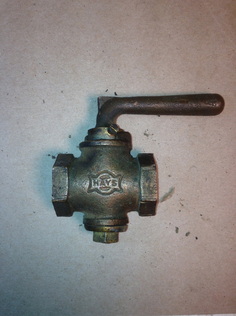 
Over 700,000 strictly plumbing related posts
Welcome to Plbg.com (also known as PlumbingForum.com) where plumbing advice, education, information, help and suggestions are provided by some of the most experienced plumbers and plumbing contractors anywhere who all wish to "give back" to society. Since 1996 we have been free without popup or other invasive ads and known to be the best online STRICTLY PLUMBING advice site. If you have questions about plumbing, toilets, sinks, faucets, drains, sewers, water filters, venting, water heating, showers, pumps, and other strictly PLUMBING related issues then you've come to the right place. Please refrain from asking or discussing legal questions, or pricing, or where to find and/or purchase products, or any business issues, or for contractor referrals, or any other questions or issues not specifically related to plumbing. Keep all posts positive and absolutely no advertising. Our site is completely free, without ads or pop-ups and we don't tract you. We absolutely do not sell your personal information. We are made possible by: 
|
|
Author:
DIY_Novice (IL)
Hi all - this old taper gas valve had a tiny leak when we bought the house and was "fixed" before moving in. I was doing some unrelated work down here and decided to spray some gas leak liquid on it and has it showed very very small microfoam being produced out the side where the threaded nut fastens to the threaded stud. Located in unfinished portion of the basement. Honestly I never plan on using it, I always just use the whole house shut-off at the meter.
1) Is attempting to tighten this (packing?) nut safe - ie: is there any chance I'm going to make it worse?
2) Is it safe to put some silicone/RTV (or JB weld?) around this leaking threaded area to seal it temporarily?
3) What is the recommended permanent fix here? Cut pipe in half, un-thread, install new gas ball valve with black iron pipe union? L-R coupling and nipples? Are unions code for gas lines? (Greater chicago area). I will likely hire this out but ultimately I'd like to know the recommended method here.
4) Since I'm never planning on using it - is repacking it with grease and tightening it hard a permanent solution? I don't ever plan on turning it - I'll use the whole house gas valve.
As I type this post, I went down again and sprayed more liquid - this time, no foam/bubbles at all... It must be a very small leak??? I've never smelled anything down there.
Picture below is reference - not my picture:

Any advice is greatly welcomed.
Edited 1 times.
|
|
Post Reply
|
|
|
Author:
bernabeu (SC)
Quote
..... 4) Since I'm never planning on using it - is repacking it with grease and tightening it hard a permanent solution? .....
YES
disassemble, inspect, repack, reassemble, tighten, operate valve several times, retighten, retest
|
|
Post Reply
|
|
|
Author:
packy (MA)
there is such a thing as gas valve grease.
i don't know the difference between it and silicone grease ?
it's pretty simple to take a valve apart, grease it and put it back together.
tighten the nut until it is stiff to turn the handle but you can still turn it.
|
|
Post Reply
|
|
|
Author:
bernabeu (SC)

graphite and/or molybdenum hi temperature grease(s) work for gas cocks
|
|
Post Reply
|
Please note:
- Inappropriate messages or blatant advertising will be deleted. We cannot be held responsible for bad or inadequate advice.
- Plbg.com has no control over external content that may be linked to from messages posted here. Please follow external links with caution.
- Plbg.com is strictly for the exchange of plumbing related advice and NOT to ask about pricing/costs, nor where to find a product (try Google), nor how to operate or promote a business, nor for ethics (law) and the like questions.
- Plbg.com is also not a place to ask radiant heating (try HeatingHelp.com), electrical or even general construction type questions. We are exclusively for plumbing questions.
Search for plumbing parts on our sponsor's site:
Special thanks to our sponsor:

|





